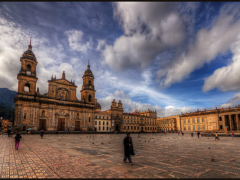-

Bridging the Corruption Gap in Brazil
The fight against corruption is an ever-present key issue in Brazilian media and society. It’s common knowledge that, despite Brazil’s vast economic potential and the country’s commitment to political and social stability, much of its growth has been sapped by the cancer of corruption. Whether through inefficient governance and institutions […]
Read all posts for ‘Governance’
-

The Flexible Separation of Powers in Colombia
The article responds to the Secrets of Transformation multimedia series, a joint project of Bertelsmann Transformation Index and Deutsche Welle. Colombia has a presidential system of government which means that the head of government is elected through popular vote and that the executive and legislative terms are fixed and do not need mutual ratification. So […]
-

Nepal’s Complex Democracy: Re-thinking the Separation of Powers
The article responds to the Secrets of Transformation multimedia series, a joint project of Bertelsmann Transformation Index and Deutsche Welle. Nepal’s November 2013 parliamentary elections set a national precedent for democratic governance. Ironically, with the right people in charge and support from the population, temporary restrictions on separation of powers may serve […]
-

The Separation of Powers in Australia
The article responds to the Secrets of Transformation multimedia series, a joint project of Bertelsmann Transformation Index and Deutsche Welle. The doctrine of the separation of powers has received increased attention in the Australian media in light of several recent judicial and political events. This doctrine is entrenched in the Australian Constitution, which establishes a […]
-

Where Have All The Powers Gone?
The article responds to the Secrets of Transformation multimedia series, a joint project of Bertelsmann Transformation Index and Deutsche Welle. When Montesquieu postulated the theory of separation of powers, he was most probably guided by the belief that “If angels were to govern men, neither external nor internal controls on government would be necessary”.[1] But […]
